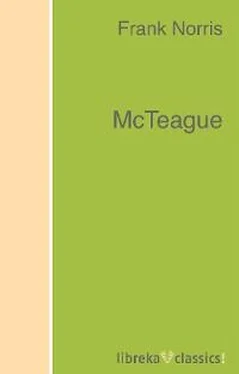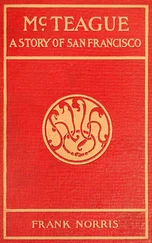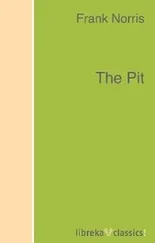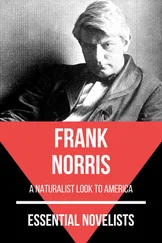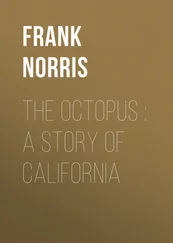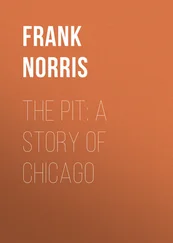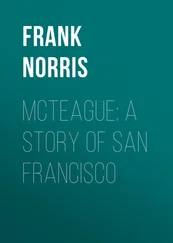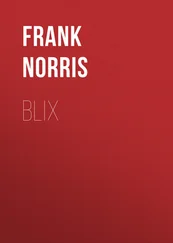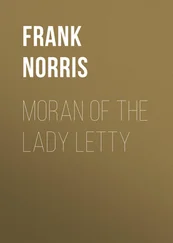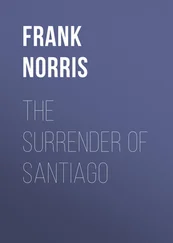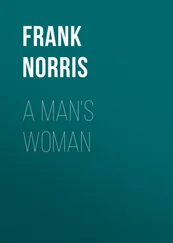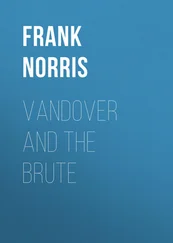Frank Norris - McTeague
Здесь есть возможность читать онлайн «Frank Norris - McTeague» — ознакомительный отрывок электронной книги совершенно бесплатно, а после прочтения отрывка купить полную версию. В некоторых случаях можно слушать аудио, скачать через торрент в формате fb2 и присутствует краткое содержание. Жанр: unrecognised, на английском языке. Описание произведения, (предисловие) а так же отзывы посетителей доступны на портале библиотеки ЛибКат.
- Название:McTeague
- Автор:
- Жанр:
- Год:неизвестен
- ISBN:нет данных
- Рейтинг книги:5 / 5. Голосов: 1
-
Избранное:Добавить в избранное
- Отзывы:
-
Ваша оценка:
- 100
- 1
- 2
- 3
- 4
- 5
McTeague: краткое содержание, описание и аннотация
Предлагаем к чтению аннотацию, описание, краткое содержание или предисловие (зависит от того, что написал сам автор книги «McTeague»). Если вы не нашли необходимую информацию о книге — напишите в комментариях, мы постараемся отыскать её.
libreka classics – These are classics of literary history, reissued and made available to a wide audience.
Immerse yourself in well-known and popular titles!
McTeague — читать онлайн ознакомительный отрывок
Ниже представлен текст книги, разбитый по страницам. Система сохранения места последней прочитанной страницы, позволяет с удобством читать онлайн бесплатно книгу «McTeague», без необходимости каждый раз заново искать на чём Вы остановились. Поставьте закладку, и сможете в любой момент перейти на страницу, на которой закончили чтение.
Интервал:
Закладка:
Titel: McTeague
von Scott Hemphill, L. M. Montgomery, L. Frank Baum, John Milton, René Descartes, Baroness Emmuska Orczy Orczy, Karl Marx, Friedrich Engels, Edgar Rice Burroughs, Unknown, Norman F. Joly, Norman Coombs, David Slowinski, Mark Twain, Henry David Thoreau, Stephen Crane, John Goodwin, Nathaniel Hawthorne, Winn Schwartau, Odd De Presno, Sir Walter Scott, Jules Verne, Mary Wollstonecraft Shelley, United States. Central Intelligence Agency, United States, Canada, Willa Sibert Cather, Anthony Hope, Edwin Abbott Abbott, Charles Dickens, Frederick Douglass, William Shakespeare, Bruce Sterling, Franklin Delano Roosevelt, Jane Austen, Thomas Hardy, Sir Arthur Conan Doyle, Edna St. Vincent Millay, Gene Stratton-Porter, Richard McGowan, Frances Hodgson Burnett, United States. Bureau of the Census, Electronic Frontier Foundation, Robert Louis Stevenson, Anonymous, Jerry Bonnell, Robert Nemiroff, Andrew Lang, G. K. Chesterton, John Bunyan, Sunzi 6th cent. B.C., Harold Frederic, Mary Wollstonecraft, Victor Hugo, René Doumic, Upton Sinclair, Virginia Woolf, George Eliot, Thomas Paine, Benjamin Franklin, Plato, Samuel Taylor Coleridge, Ruth M. Sprague, William Dean Howells, Wilkie Collins, Jean Webster, H. G. Wells, Kate Chopin, Mark Eliot Laxer, Louisa May Alcott, Frank Norris
ISBN 978-3-7429-0156-9
Alle Rechte vorbehalten.
Es ist ohne vorherige schriftliche Erlaubnis nicht gestattet, dieses Werk im Ganzen oder in Teilen zu vervielfältigen oder zu veröffentlichen.
McTEAGUE
A Story of San Francisco
by Frank Norris
Contents
CHAPTER 1 CHAPTER 2 CHAPTER 3 CHAPTER 4 CHAPTER 5 CHAPTER 6CHAPTER 7 CHAPTER 8 CHAPTER 9 CHAPTER 10 CHAPTER 11 |
CHAPTER 12 CHAPTER 13 CHAPTER 14 CHAPTER 15 CHAPTER 16 CHAPTER 17 CHAPTER 18 CHAPTER 19 CHAPTER 20 CHAPTER 21 CHAPTER 22 |
CHAPTER 1
It was Sunday, and, according to his custom on that day, McTeague took his dinner at two in the afternoon at the car conductors' coffee-joint on Polk Street. He had a thick gray soup; heavy, underdone meat, very hot, on a cold plate; two kinds of vegetables; and a sort of suet pudding, full of strong butter and sugar. On his way back to his office, one block above, he stopped at Joe Frenna's saloon and bought a pitcher of steam beer. It was his habit to leave the pitcher there on his way to dinner.
Once in his office, or, as he called it on his signboard, "Dental Parlors," he took off his coat and shoes, unbuttoned his vest, and, having crammed his little stove full of coke, lay back in his operating chair at the bay window, reading the paper, drinking his beer, and smoking his huge porcelain pipe while his food digested; crop-full, stupid, and warm. By and by, gorged with steam beer, and overcome by the heat of the room, the cheap tobacco, and the effects of his heavy meal, he dropped off to sleep. Late in the afternoon his canary bird, in its gilt cage just over his head, began to sing. He woke slowly, finished the rest of his beer—very flat and stale by this time—and taking down his concertina from the bookcase, where in week days it kept the company of seven volumes of "Allen's Practical Dentist," played upon it some half-dozen very mournful airs.
McTeague looked forward to these Sunday afternoons as a period of relaxation and enjoyment. He invariably spent them in the same fashion. These were his only pleasures—to eat, to smoke, to sleep, and to play upon his concertina.
The six lugubrious airs that he knew, always carried him back to the time when he was a car-boy at the Big Dipper Mine in Placer County, ten years before. He remembered the years he had spent there trundling the heavy cars of ore in and out of the tunnel under the direction of his father. For thirteen days of each fortnight his father was a steady, hard-working shift-boss of the mine. Every other Sunday he became an irresponsible animal, a beast, a brute, crazy with alcohol.
McTeague remembered his mother, too, who, with the help of the Chinaman, cooked for forty miners. She was an overworked drudge, fiery and energetic for all that, filled with the one idea of having her son rise in life and enter a profession. The chance had come at last when the father died, corroded with alcohol, collapsing in a few hours. Two or three years later a travelling dentist visited the mine and put up his tent near the bunk-house. He was more or less of a charlatan, but he fired Mrs. McTeague's ambition, and young McTeague went away with him to learn his profession. He had learnt it after a fashion, mostly by watching the charlatan operate. He had read many of the necessary books, but he was too hopelessly stupid to get much benefit from them.
Then one day at San Francisco had come the news of his mother's death; she had left him some money—not much, but enough to set him up in business; so he had cut loose from the charlatan and had opened his "Dental Parlors" on Polk Street, an "accommodation street" of small shops in the residence quarter of the town. Here he had slowly collected a clientele of butcher boys, shop girls, drug clerks, and car conductors. He made but few acquaintances. Polk Street called him the "Doctor" and spoke of his enormous strength. For McTeague was a young giant, carrying his huge shock of blond hair six feet three inches from the ground; moving his immense limbs, heavy with ropes of muscle, slowly, ponderously. His hands were enormous, red, and covered with a fell of stiff yellow hair; they were hard as wooden mallets, strong as vises, the hands of the old-time car-boy. Often he dispensed with forceps and extracted a refractory tooth with his thumb and finger. His head was square-cut, angular; the jaw salient, like that of the carnivora.
McTeague's mind was as his body, heavy, slow to act, sluggish. Yet there was nothing vicious about the man. Altogether he suggested the draught horse, immensely strong, stupid, docile, obedient.
When he opened his "Dental Parlors," he felt that his life was a success, that he could hope for nothing better. In spite of the name, there was but one room. It was a corner room on the second floor over the branch post-office, and faced the street. McTeague made it do for a bedroom as well, sleeping on the big bed-lounge against the wall opposite the window. There was a washstand behind the screen in the corner where he manufactured his moulds. In the round bay window were his operating chair, his dental engine, and the movable rack on which he laid out his instruments. Three chairs, a bargain at the second-hand store, ranged themselves against the wall with military precision underneath a steel engraving of the court of Lorenzo de' Medici, which he had bought because there were a great many figures in it for the money. Over the bed-lounge hung a rifle manufacturer's advertisement calendar which he never used. The other ornaments were a small marble-topped centre table covered with back numbers of "The American System of Dentistry," a stone pug dog sitting before the little stove, and a thermometer. A stand of shelves occupied one corner, filled with the seven volumes of "Allen's Practical Dentist." On the top shelf McTeague kept his concertina and a bag of bird seed for the canary. The whole place exhaled a mingled odor of bedding, creosote, and ether.
But for one thing, McTeague would have been perfectly contented. Just outside his window was his signboard—a modest affair—that read: "Doctor McTeague. Dental Parlors. Gas Given"; but that was all. It was his ambition, his dream, to have projecting from that corner window a huge gilded tooth, a molar with enormous prongs, something gorgeous and attractive. He would have it some day, on that he was resolved; but as yet such a thing was far beyond his means.
Читать дальшеИнтервал:
Закладка:
Похожие книги на «McTeague»
Представляем Вашему вниманию похожие книги на «McTeague» списком для выбора. Мы отобрали схожую по названию и смыслу литературу в надежде предоставить читателям больше вариантов отыскать новые, интересные, ещё непрочитанные произведения.
Обсуждение, отзывы о книге «McTeague» и просто собственные мнения читателей. Оставьте ваши комментарии, напишите, что Вы думаете о произведении, его смысле или главных героях. Укажите что конкретно понравилось, а что нет, и почему Вы так считаете.
